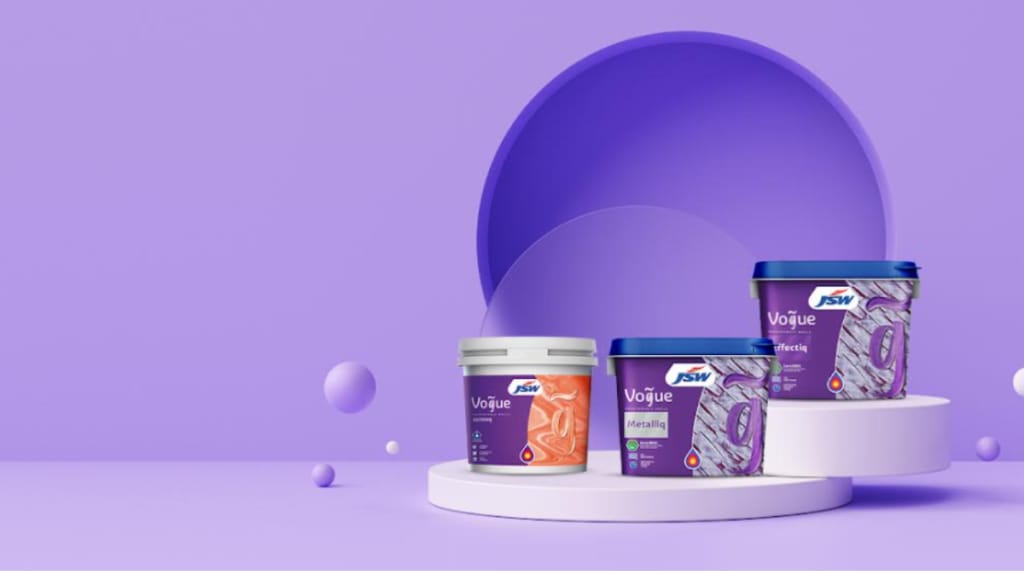The most obvious way to differentiate your product in a crowded market is to offer it at the lowest price.
Or identify the problems your biggest competitors haven’t been able to solve and play the premium game. That’s tricky, but JSW Paints, launched in 2019 and part of the $23-billion JSW Group, has its eyes set on that exact route for growth. Still struggling to get a strong footing in the premium end of the `70,000-crore paint market, its recent acquisition of Dulux-maker AzkoNobel India could make the task a tad easier.
“Breaking into the premium segment has been a struggle for JSW Paints,” observes Ajimon Francis, MD India, Brand Finance. “The latest acquisition will position JSW as a serious contender. Dulux will give it more bargaining power with the dealer network.”
For its part, as a premium brand, Dulux has struggled to scale up given the price sensitivity of the market, the intense competition and the influence of contractors in the purchase decision.
As things stand, the decorative paints market is dominated by Asian Paints, which holds around 52% share, followed by Berger Paints with an estimated 18% share and Kansai Nerolac at 12%. AzkoNobel holds a small 6.2% of the market and is the fourth-largest player, just ahead of 2024 entrant Birla Opus. JSW Paints has about 3% share and is eyeing 10% of the market post this acquisition.
Parth Jindal, managing director, says the company will break into the top three in the category in three years. “Dulux is an iconic premium brand with a strong urban footprint and deep consumer trust, while JSW Paints has a robust presence in the mass and value segments, especially in the tier-II to tier-IV markets. By combining these strengths, we unlock significant distribution synergies and brand depth,” says Jindal.
Tackling a tough market
The industry has been struggling over the last year or so due to muted demand for decorative paints, even during the festive season. The market has also seen the aggressive rise of new players such as Birla Opus that have
challenged category leaders with a wide product range, strong distribution network, and focus on digital engagement with dealers and painters. Reports say Asian Paints has seen its market share drop from 59% to 52% in the last fiscal.
Given that newer entrants must disrupt with sharp positioning, hyperlocal strategies and value-led offerings that go beyond product, points out Rajeev Nayar, partner, KPMG in India. “Growth will be driven by design-led innovation, sustainability, and activating key influencers like architects, interior designers, contractors, and homeowners. Winning players will excel in micro-market targeting, expand the share of influencer wallets and deliver a seamless end-to-end experience for customers.”
Mit Desai, practice member, consumer and internet, Praxis Global Alliance, adds the primary driver will be channel engagement — providing the channel partners with adequate credit, higher margins and other trade terms and incentives for them to continue their partnerships.
On the upside, both JSW Paints and Birla Opus have distribution prowess, thanks to the wide network of their steel and cement businesses, notes Rushi Anandan, associate professor, general management, KJ Somaiya Institute of Management.
“The Azko acquisition provides JSW with the powerful Dulux brand, which means they can gain market share without significant marketing spends. Incumbents like Asian Paints will need to sacrifice margins to ensure distributor and employee loyalty,” he says.
JSW also believes the acquisition is a transformative step. “It allows us to offer a full-spectrum portfolio, spanning premium, mass-premium, and value segments, something we couldn’t do at scale before,” says Jindal.
JSW aims to carve out a distinctive space in the market. “While some new players may focus heavily on short-term pricing plays, our focus is on building sustainable, long-term consumer trust. Our strength also comes from the larger JSW ecosystem; we are already a household name in steel, cement and infrastructure, and this acquisition helps us become an even more complete partner in the home-building journey,” says Jindal.

